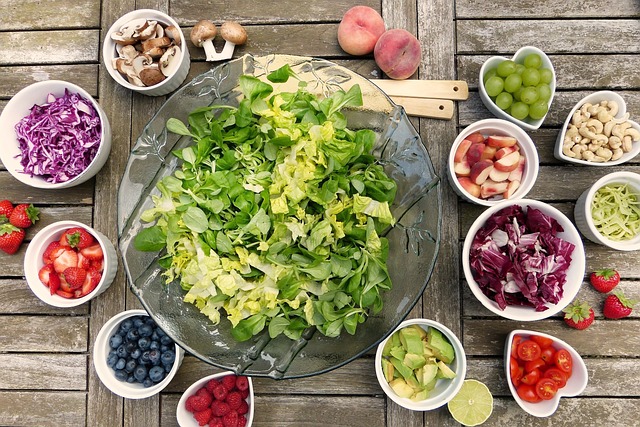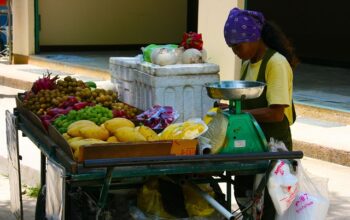Local food delivery and meal preparation services for seniors have proven to be a multifaceted solution that addresses nutritional needs, supports local economies, and fosters social engagement. These services provide personalized meals tailored to dietary requirements, leveraging fresh, locally-sourced ingredients to ensure both health and taste are prioritized. They offer a convenient alternative for seniors with limited mobility or those living in remote areas, helping them maintain independence and well-being. The customization options cater to diverse needs, accommodating health conditions and dietary restrictions with precision. These programs not only streamline logistics through partnerships with transportation services but also create opportunities for social interaction, which is essential for the physical and emotional health of older adults. Community support, strategic partnerships, and financial assistance are crucial in making these services accessible to those with limited incomes. Investments in specialized training, technology like mobile apps for ordering, and community kitchens operated by local culinary talent contribute to an efficient and cost-effective delivery system, expanding menu options and enhancing the overall quality of service. By adopting a collaborative, sustainable, inclusive, and nutrition-centric approach, these services can significantly improve the quality of life for seniors, allowing them to age healthily within their communities.
Titled “Local Food Delivery and Meal Preparation: A Lifeline for Senior Nutrition,” this article sheds light on a critical aspect of senior care. It explores the transformative effects of meal delivery services on the dietary well-being of the elderly, detailing their logistics, benefits, and how communities can amplify their support to enhance this vital service. Join us as we delve into the role of local food delivery in ensuring seniors receive nutritious meals, fostering independence and health.
- Understanding the Impact of Local Food Delivery and Meal Preparation on Senior Nutrition
- The Logistics and Benefits of Senior Meal Delivery Programs
- How Communities Can Support and Enhance Local Food Delivery for Seniors
Understanding the Impact of Local Food Delivery and Meal Preparation on Senior Nutrition

Local food delivery and meal preparation services play a pivotal role in enhancing senior nutrition by providing access to fresh, nutritious meals tailored to dietary needs and preferences. These services often source ingredients from local farmers and suppliers, ensuring that seniors receive meals rich in the necessary vitamins and minerals while supporting the local economy. The proximity of these suppliers means that meals can be delivered quickly, preserving both flavor and nutritional value. Moreover, such services offer a flexible solution for older adults who may have difficulty with grocery shopping or meal preparation due to mobility issues, health conditions, or living in remote areas. This convenience not only supports better eating habits but also promotes independence and well-being among seniors. Additionally, these programs can be customized to accommodate various dietary restrictions, including allergies or specific health requirements, further ensuring that the nutritional needs of each individual are met with care and attention. The positive impact on the health and daily living of seniors through local food delivery and meal preparation is a testament to the effectiveness of these services in promoting healthy aging within the community.
The Logistics and Benefits of Senior Meal Delivery Programs

Senior meal delivery programs represent a critical lifeline for many older adults, offering a blend of convenience, nutrition, and social engagement. The logistics behind such initiatives are complex yet vital to their success. These programs involve sourcing nutritious and appetizing meals from local food providers, ensuring that the selections cater to dietary restrictions and preferences. Coordination with local transportation services ensures timely delivery to participants’ homes. This seamless operation requires careful planning and efficient coordination among various stakeholders, including meal preparation facilities, drivers, and healthcare partners.
The benefits of these programs are manifold. They provide a reliable source of balanced, wholesome meals that can significantly improve the health outcomes for seniors, particularly those with limited mobility or who live alone. Local food delivery through these services often includes fresh ingredients, supporting local agriculture and reducing the carbon footprint associated with traditional grocery shopping. Additionally, meal delivery programs often include social interaction, as many services are accompanied by a brief visit from a driver or volunteer, offering a daily check-in that can be crucial for safety and well-being. This dual focus on health through meal preparation and engagement through personal contact underscores the value of such programs in enhancing the quality of life for seniors.
How Communities Can Support and Enhance Local Food Delivery for Seniors

Community support for local food delivery and meal preparation services tailored to seniors is multifaceted, involving both direct participation and collaborative efforts with stakeholders. A robust community engagement strategy can amplify these services, ensuring they are well-integrated into the fabric of senior care. Local businesses such as farms, grocers, and culinary services can partner with nonprofits and government agencies to supply nutritious meals directly to seniors’ homes. By subsidizing or providing vouchers for these services, communities can make them more accessible to those with limited incomes. Additionally, engaging local volunteer networks to assist with meal delivery ensures that seniors receive their meals promptly and safely.
To enhance the quality of local food delivery and meal preparation for seniors, communities can invest in training programs for service providers to ensure they are equipped with the necessary knowledge to cater to dietary restrictions and health concerns prevalent among older adults. Furthermore, leveraging technology such as mobile apps can streamline the ordering process and improve the efficiency of deliveries. Communities can also support the establishment of community kitchens where local chefs and volunteers can prepare meals in larger quantities, reducing costs and allowing for more diverse menu options. By fostering a collaborative environment that values sustainability, inclusivity, and nutrition, communities can significantly improve the local food delivery ecosystem for seniors, ensuring they remain well-nourished and independent within their own homes.
Community-driven local food delivery and meal preparation programs play a pivotal role in enhancing senior nutrition. These initiatives not only ensure that seniors receive well-balanced, nutritious meals but also foster social connections and support the local economy. By embracing these services, communities can effectively address the dietary needs of their elderly members, promoting healthier lifestyles and independent living. It is clear that such programs are a win-win for both seniors and local food providers, creating a network of mutual benefit. As we continue to innovate and expand these essential services, we affirm our commitment to the well-being and vitality of our aging population.



